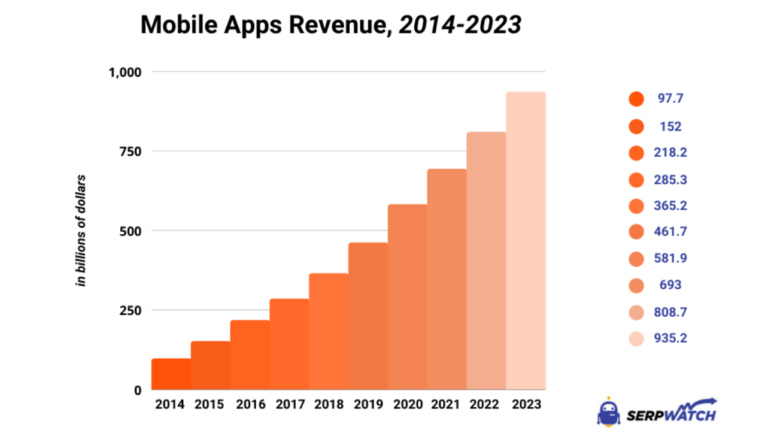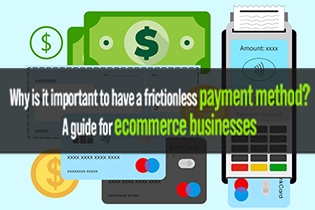
Every start-up starts with an idea. The key task for a start-up is to develop a product - if it is not needed in the market, neither good development nor persistent advertising will save it from failure.
The year 2020 saw a boom in the adoption of mobile technology in people's lives. A pandemic has closed the doors of shops, restaurants, cinemas, banks, and medical clinics. The need for online services has grown. We bought more through smartphones and spent $143 billion on apps - 20% more than before the pandemic.
The expected progress for two to three years happened in one year. The number of apps we use every day has grown by 30%. They have replaced mainly offline experience.
Users are unwilling to give up that comfort, so businesses and startups still need Mobile App Development. Start-up entrepreneurs need to create successful web apps which understand users’ needs.

How Good App Ideas are Generated: the Product Approach in the Web App Development
Generating ideas for a product is different than simply coming up with ideas. Yes, you can use brainstorming, but will it yield the expected results?
To develop an idea for an app that people will use daily, you need to take a product approach and a creative one. The product approach in development is the creation of apps and web services that focus on the target audience's needs.
How the product approach helps you look for app ideas
To take a product approach to find ideas for a mobile app, follow these simple steps:
- Identify the pains of your target audience. If you are a long-time business owner, you know your audience well: you've researched it, segmented it, and spelled out portraits of your target users.
- Look at how your competitors are dealing with similar problems. Suggest how the pains of your target audience can be solved through a mobile app.
- Engage your horizons to see what solutions competitors have found.
Best Web App Ideas For Startups
Since 2020, people have been spending more time at home. Home life, daily chores, and tasks attract a lot of attention and need to be optimized in the same way that works processes used to require it. Having a unique app idea does not necessarily mean creating something new from scratch. Instead, it can also be a form of enhancing existing solutions. Here are the best ideas for mobile and web apps that you can launch as a startup and make money.
1. An app with recipes

Given the popularity of apps with lifestyle content, food delivery services, and messengers, you could create an app with recipes and nutrition tips. And to keep people interacting, sharing recipes and cooking results, a comment feed and chats can be added. Cooking is a chore, so users will appreciate an app with tested and systematized recipes to make daily life easier. And people who are passionate about cooking will be able to act as experts.
The project can be monetized through an advertising model - promoting certain food producers. Making some of the content available as a paid subscription is also possible.
2. A foreign language learning app
Statistics show that educational apps are in demand, and the global market can achieve better monetization. Based on this data, it is possible to develop the concept of a language-learning app relevant to people worldwide. The app should have a theoretical part in texts or video lessons, tests for self-testing, and the possibility to call people from other countries to practice and communicate.
It may be difficult for a start-up to compete with larger language practice apps - recruiting many people to communicate with at once may take time. But this problem can be solved through audience activity: offer free bonuses for active communication. You can also add lessons with professional teachers. With such lessons, you can monetize the app and make some of the content paid for.
3. App for book reading
Simple book apps are popular. And to avoid competing with the giants, you can focus on a specific segment: for example, take children's books, art history, and 20th-century literature, or focus on rare books. You can offer users a reading library, audiobooks, and translations into different languages for language practice. To monetize the mobile app, you can limit the number of books available monthly and introduce tariffs depending on how much content the user wants to consume.
4. Service integrator for food ordering
There are quite a few apps for delivering food from shops and restaurants - statistically speaking, and they are popular. But they all work with different establishments, and the prices in each are just as different. Sometimes the user has to download ten apps to find the best one for themselves. This problem can be solved by making a convenient integrator - within one city. Show the maximum number of restaurants and shops, allowing users to compare terms and prices. This can be organized using filters: the user should roughly specify what they need, and the app will give out the most favorable options.
The app could be better monetized by charging a commission to the restaurant or shop where the user purchases. An alternative is an inexpensive paid subscription: if people use the mobile app regularly and find the best prices, the benefits outweigh the cost. But introducing this right away does not make sense - users need to realize the product's value first.
5. Dating apps by interest
Trends show that social apps are relevant and in demand. But it would be difficult for a startup to compete with the global giants - so you should focus on narrower niches. You could create an app for dating and communicating with people with interests, such as fishing enthusiasts, mothers with children, dancers, artists, and hikers. This will help people with common interests to find each other - for all the variety of dating services; there are few such apps on the market yet. The project can be monetized by introducing paid profiles or by limiting the number of dating profiles in the free version.
6. Application for a healthy lifestyle
Lifestyle apps are popular, super apps are trending, and people are becoming more health-conscious after the pandemic. A multifunctional service to check and maintain your health will be relevant in 2023. It can include a calorie tracker, a chatbot with exercise recommendations based on habits and job specifics, add a search for pools, gyms, and jogging parks based on geolocation. Expert content from nutritionists and trainers can be placed in the app.
You can monetize the mobile app by promoting specific fitness centers, sports equipment, and health food brands. Some content, such as private online tutorials and consultations, can also be made available for a fee.
7. An app for watching films and lectures
While many people prefer to watch videos on a big screen, modern people spend a lot of time on the road or simply away from home without the ability to carry a laptop everywhere. For people to spend their free time in a pleasant and useful way, the solution is a cross-platform service for watching videos which would be easy to use from desktop, tablet, and laptop. A key feature of the service could be different content: films, serials, news, educational lectures, and product reviews. The service can be monetized through a paid subscription with a free trial period.
Conclusion
Agree; it's unusual not to have a hobby in 2023 when many activities are available. At the very least, your hobby could be watching TV series, movies, or anti-stress coloring. Apps that work for our hobbies will always be popular. The main thing is to create a user-friendly interface and functionality. The global pandemic has accelerated the need for new approaches for everyone using modern technology and the Internet. Mobile applications in your pocket are becoming more and more necessary for startups.








